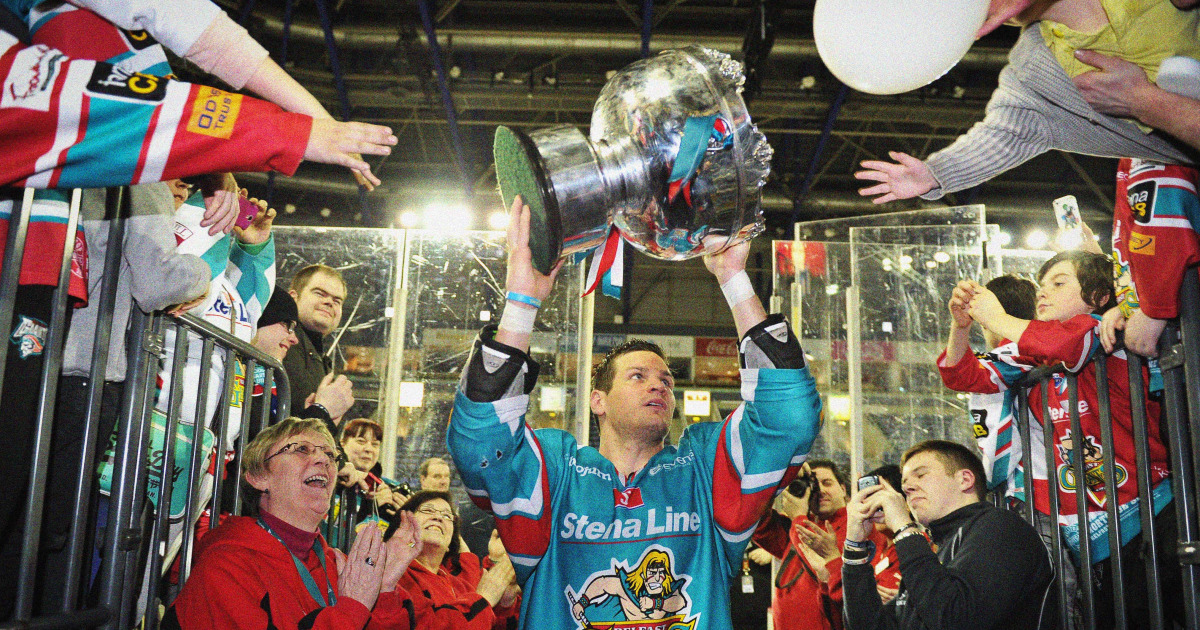
BELFAST, Northern Ireland — A hockey rink might seem like an unlikely space for conflict avoidance. But in deeply fractious Belfast, the all-conquering Giants have emerged as a surprising source of nonsectarian pride.
In a land where ice hockey is a truly foreign game, and with a roster filled largely by Canadians and Americans, the Giants have defied expectations to become a U.K. sporting success. But, more importantly, this foreign game has allowed for the creation of a rare and welcome neutral space — one that could offer a timely template for the future in the wake of a historic election result that could reshape Northern Ireland’s politics.
Last week about 2,000 people paid to attend not a game, but an awards night at the team’s home arena, where long lines of fans waited patiently for a meet-and-greet with the players.
The Giants have won five of the last 10 trophies on offer. In the just-completed 2021-22 season, they lifted the Challenge Cup in March, the trophy for winning the Elite Hockey League’s regular season in April, and fell just short of “ the treble” earlier this month when they lost to the Cardiff Devils in the championship game of the playoffs, with the prize being the league’s third and final cup.
“I didn’t do sports,” said Craig Kane, who went on to explain how he nonetheless became an instant supporter after being “dragged” to a game by his wife, Michele. “It grabbed me because it was just something completely new. It was fast, it was violent, it was entertaining,” he said from the packed lobby of the SSE Arena. “It was everything. And it was a family. There was no bitterness.”
The political backdrop
In this corner of the United Kingdom, bitterly split for so long between predominantly Catholic nationalists and Protestant pro-British unionists, the nationalist party Sinn Féin — which supports unification with the Republic of Ireland — became the largest party in Northern Ireland’s Assembly last weekend for the first time since the partition that officially split Ireland in two in 1921.
But while Sinn Féin’s success is significant, Irish reunification isn’t going to happen overnight, or even in the near future, thanks in part to Brexit, the province’s complex power-sharing rules, and the emergence of a growing number of people who identify as neither unionist nor nationalist.
That is evident in the success of a party called Alliance, which made the biggest gains in the election with a neutral platform that avoids any sectarian identification. The party doubled its 2017 performance to finish third, behind Sinn Féin and the unionist Democratic Ulster Party (DUP), a dominant force for decades that now appears to be in decline.
“I don’t think Unionism can go forward,” said Peter McLoughlin, a member of the George Mitchell Institute for Global Peace at Queen’s University. “It’s trying to go backwards and it doesn’t know how to go forward.”
Source: | This article originally belongs to Nbcnews.com










